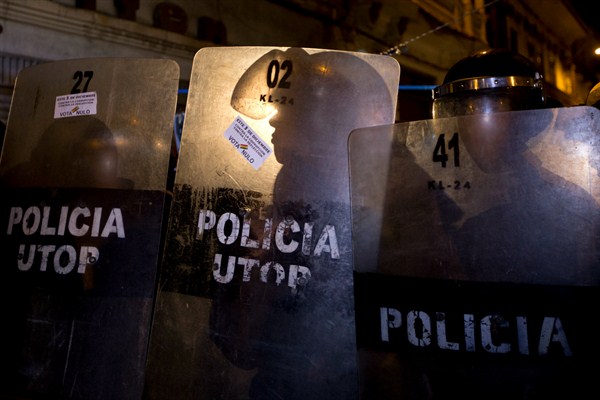In September, Bolivian President Evo Morales signed a long-anticipated law enacting reforms to the country’s justice system, which consistently ranks among the worst in the Western Hemisphere. The law aims to alleviate heavy caseloads for judges and reduce long wait times for cases to be resolved, but it fails to address many of the systemic issues plaguing the Bolivian judiciary. In an interview with WPR, Ramiro Orias, a La Paz-based lawyer and program officer for the Due Process of Law Foundation, discusses the new reform initiative and explains why its implementation so far does not inspire confidence.
World Politics Review: What led the Morales government to make this push for judicial reform, and what does the reform legislation accomplish?
Ramiro Orias: On Sept. 27, President Evo Morales signed into law a judicial reform bill that creates regional constitutional courts in each of Bolivia’s nine departments, or regions, overseen by the country’s Plurinational Constitutional Court. All told, the law establishes 22 new constitutional courts in the country, aimed at more effectively ensuring the protection of Bolivians’ fundamental rights under the constitution, such as the right to habeas corpus and the right to challenge the legality of government actions. Each of the regional constitutional courts established by the reform law will include two judges with a specialized level of knowledge and experience regarding constitutional law. These new constitutional judges will be overseen by the Bolivian Judicial Council, the governing body that oversees the training of judges, with the participation of the national universities.

